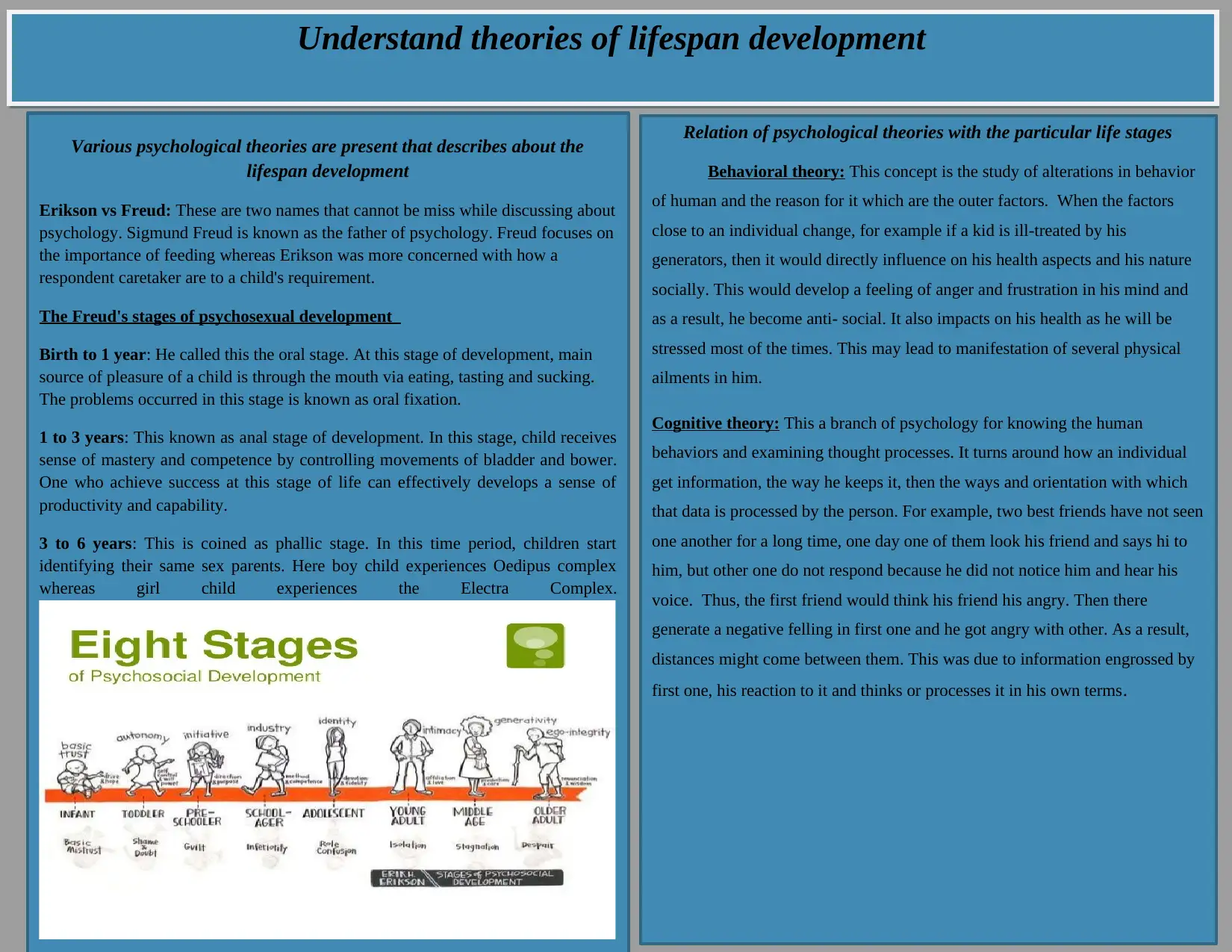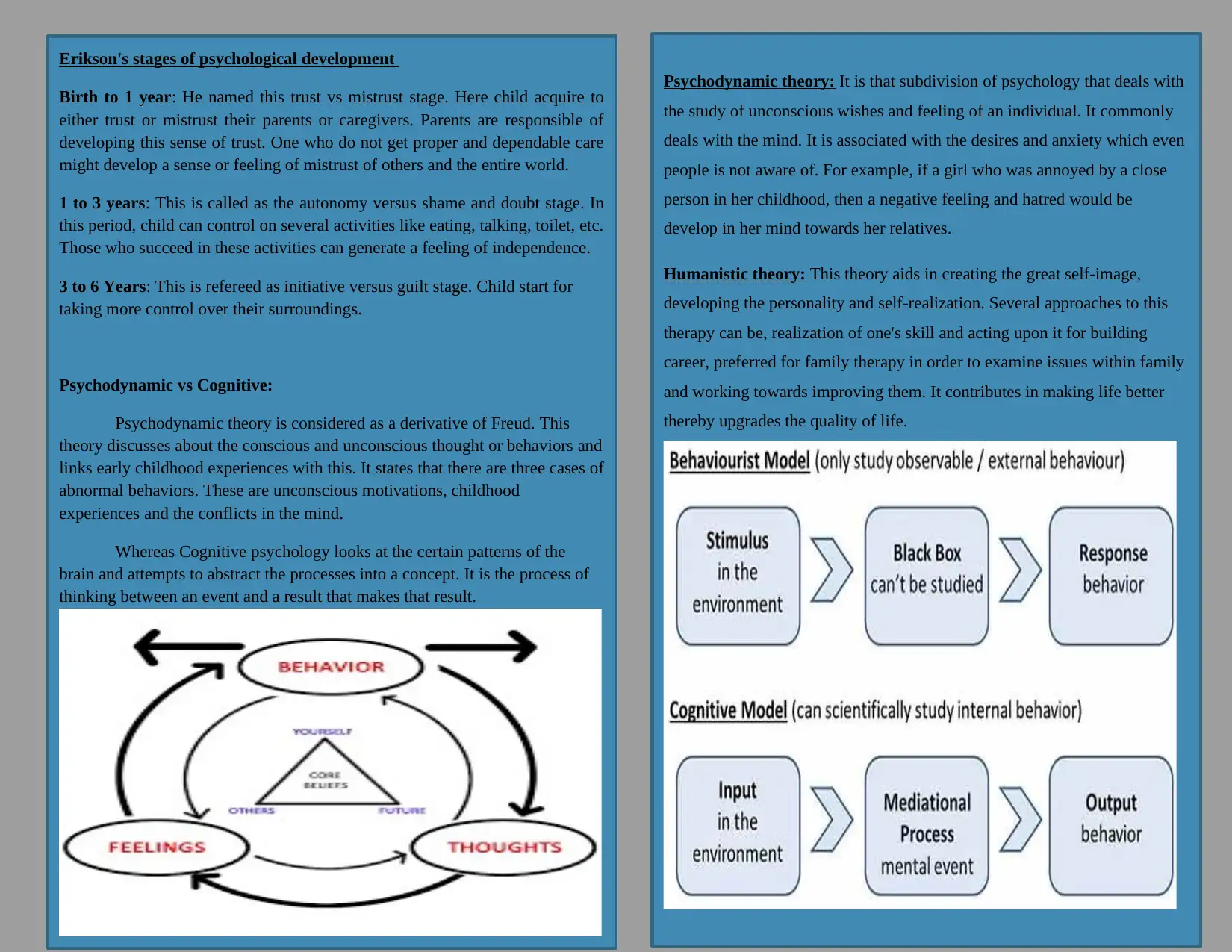Understanding Lifespan Development: Erikson, Freud, and Theories
VerifiedAdded on 2020/07/22
|2
|1742
|113
Homework Assignment
AI Summary
This assignment provides an overview of various psychological theories related to lifespan development, focusing on the contributions of Erik Erikson and Sigmund Freud. It details Freud's psychosexual stages (oral, anal, phallic) and Erikson's psychosocial stages (trust vs. mistrust, autonomy vs. shame and doubt, initiative vs. guilt), highlighting their impact on personality development. The assignment also explores the relationship between psychological theories and specific life stages, including behavioral, cognitive, psychodynamic, and humanistic theories. It compares and contrasts psychodynamic and cognitive approaches, as well as psychodynamic and humanistic theories, providing examples to illustrate the concepts. The document explains how early childhood experiences and unconscious motivations influence behavior. The assignment concludes by emphasizing how these theories are used to understand and address various psychological phenomena.
1 out of 2








![[object Object]](/_next/static/media/star-bottom.7253800d.svg)